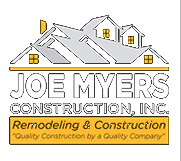Home remodeling is an exciting project that can make you fall in love with your home all over again. However, remodeling projects can come with a fair share of challenges as you navigate design choices, budgets, and construction inconveniences. Luckily, you can minimize the stress with some forethought and planning.
What Do I Need To Know Before Remodeling?
Below are some home renovations tips to consider before carrying out a remodeling project
Design Inspiration
One factor to consider when renovating your home is what you desire the final design to be. Interior aesthetics are varied and vast, thus the options are limitless. However, too many options can be overwhelming.
To narrow your options, you should search online for interiors you are drawn to, noting the colors, styles, and textures you like. Then decide on how to integrate those elements into your design.
Budget
The budget is an important component of any remodeling project as it dictates what will and will not be possible. To draw a budget, begin by looking closely at the finances and deciding the maximum amount you would spend comfortably on your project.
Once you determine the maximum amount you wish to spend, reduce the number by around 10 percent. Keeping the budget below your max allows you some room if unanticipated costs and challenges arise during your project.
Return on Investment and Neighborhood Comparisons
Most home renovation projects give a substantial return on investment. However, your potential return mainly depends on your neighborhood comparisons and the kind of project you complete.
Moreover, some renovation projects provide a higher average return on investment than others. For example, minor kitchen renovation projects yield around 72.2 percent ROI on average, while the addition of an upscale primary suite offers about 47 percent ROI on average.
Building Permits
Some renovations require a building permit from your city. This often applies to extensive projects such as the addition of new rooms. License requirements vary by location. If you are not sure whether you require a permit, contact city officials to know whether you need a permit. Failure to obtain a permit can lead to costly fees. Moreover, unlicensed additions might make your property difficult to dispose of since buyers will require to acquire a permit or risk being fined.
Hiring a Professional vs. DIY
Many people opt to do home renovation projects themselves; this can save you money as you will not pay labor expenses. Nevertheless, remodeling work can be potentially risky, particularly if the project involves plumbing, electrical, or the property’s structural integrity. Therefore, you should carefully evaluate the project to decide whether you need a professional.
Hiring Your Contractor
If you opt to engage a contractor, research professionals in your area. Friends and family referrals are an ideal starting point as they can attest to a candidate’s quality of work.
Quality of Life and Schedule
Renovation projects, more so extensive projects, may cause inconveniences, such as unusable rooms, loud noises, and big messes. Proper planning can make coping with these challenges easier. For instance, if you are planning a significant kitchen renovation, reserve a space to use as a temporary kitchen while the project is underway.
